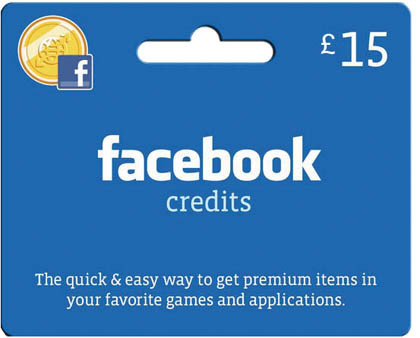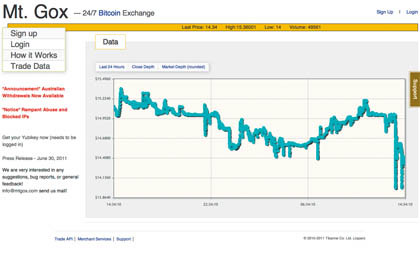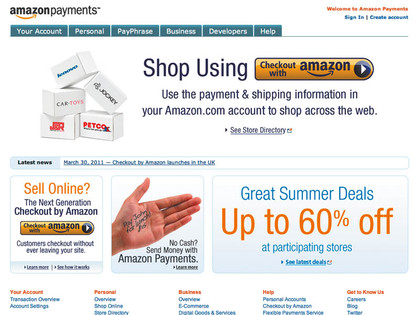Sign up for breaking news, reviews, opinion, top tech deals, and more.
You are now subscribed
Your newsletter sign-up was successful
Payment protection
For once, the UK government appears to be ahead of technology. In 2009, the Home Office sat down with mobile phone operators and The UK Cards Association to hammer out a set of rules for NFC fraud prevention.
"Working with the government, the mobile phone and banking industry have agreed to a set of guidelines. They have committed to ensuring consumers are not put at an increased risk due to the development of this technology," the Home Office says, noting that a key aim is to protect the young people "who are often the earliest adopters of technology and suffer from disproportionate risk."
The guidelines have three key points. First, any contactless payment device, card or SIM will be disabled "as soon as possible" when reported lost or stolen. Second, any transactions above a certain amount - currently £10 - will require additional verification, such as a PIN code. Third, any customer signing up for an NFC phone will be encouraged to add their details to the National Mobile Property Register to make reporting stolen devices simpler.
NFC devices will be treated like debit or credit cards, with issuers compensating customers for any transactions after a device is reported lost or stolen.
Loss and physical theft aren't the only concerns. Contactless payment devices use radio waves, which can be intercepted, and earlier this year Tesco's Head of Online R&D, Nick Lansley, said (speaking in a personal capacity) that "NFC isn't as safe as people make it out to be."
There's also the issue of whether you trust your phone operator as much as a bank. As Andrew Wise of technology consultancy Broadsight says, operators need to explain to customers why "I would let those incompetent bandits anywhere near my money, given their service levels on my phone."
Happy shoppers, happy shops?

Payment providers don't just need to persuade us to use their systems. They need to persuade retailers too. Will the Mastercard and Visa signs of today be replaced by PayPal and Facebook logos in the near future?
Sign up for breaking news, reviews, opinion, top tech deals, and more.
Rob Skinner is confident, not least because PayPal is already inking deals with major retailers. "We're making new ways to pay possible, such as on the high street with PizzaExpress and with in-app and in-game payments." You'll also find PayPal options on big-name sites like British Airways, and of course it's the default currency for eBay too.
PayPal is unusual because it's all about real-world money; other online systems like Facebook Credits and Microsoft Points are effectively one-way systems that take real money and then turn it into something you can spend online - to buy add-ons for Facebook applications, or to pay for Xbox Live games or content, for example. Could those online conversion services work as real-world payment systems too?
The team at Broadsight - Alan Patrick, Andrew Wise, David Short and Paul Lancefield - have extensive collective experience of e-payment systems, and they provided us with a collective opinion on the future of electronic money.
"We did a lot of work in the '90s around payment cards, and many [telecoms companies] considered pushing their form of electronic cash into wider circulation - allowing you to purchase newspapers with a BT Phone Card, for example," they explain, "The stumbling blocks were commercial, organisational and regulatory rather than technical."
"From a regulatory point of view, as soon as you move from an internal system - BT Phone Cards that pay for BT phone calls, or Facebook currency used for Facebook - to an external one, you become regulated as a bank," Broadsight explains. "And commercially, the partners who have to agree to use your e-money wonder why you are making a margin on their business and want to get a slice of the action themselves."
In 2010, the British Retail Consortium claimed that banks were planning to charge "excessive" fees for NFC payments, meaning that "retailers would face huge increases in their costs as these new ways of paying replace cash - particularly for low value purchases."
Such fees aren't limited to NFC systems either; online payment systems like PayPal charge retailers transaction fees too, although Google Wallet is a rare exception to the rule; as ever, Google intends to make its money by selling advertising instead.
More money, more problems
In order to replace conventional cash completely, electronic payments need to be two things. They need to be as fast and convenient to use as cash, and they need to be as cheap as cash. Firms have largely addressed the first criterion, but the second is the real challenge, especially for the smallest purchases.
When a retailer takes cash it doesn't pay any per-transaction fees, but when the payment is electronic, fees apply. That's why you'll see signs saying "no card payments under £10" in some retailers, and it's why some budget airlines charge massively inflated fees for using particular kinds of cards.
The smaller the transaction, the more significant those fees become: 20p plus 3.4 per cent per transaction (PayPal's standard rate for the smallest, low volume businesses) isn't much when you're selling £150 handbags, but it's a huge sum if you're selling 70p chocolate bars.
Fees for direct mobile billing, where your purchases are added to your monthly mobile phone bill, can be higher still. For electronic payments to replace cash completely, those fees need to come down - not just to compete with credit cards, but to undercut them.
The good news is that there's some evidence of that happening. In the US, Twitter creator Jack Dorsey's smartphone payment service Square dropped part of its industry-standard fees to encourage retailers to adopt its platform: instead of taking 2.75 per cent plus 15-17 cents per transaction, the firm has dumped the flat fees and just kept the percentage.
Meanwhile PayPal has cut the per-transaction fees for digital goods - which tend to be very low value - to 5 per cent plus 5p. "Transaction charges, whether associated with NFC or PayPal via mobile devices, clearly restrict the short term development of the mobile payments market," David Snow says.
"Nevertheless, we see the market overcoming these restrictions - the Orange/ Barclaycard NFC deployment in the UK shows that business case issues can be solved on a case-bycase basis and that consumers will use such services. Longer term, retailers will have to embrace the trends in order to remain competitive, but they will also be helped, for example during the normal point of sale equipment replacement cycle as NFC is included as standard."
Snow is also confident that more deals will be struck between mobile operators and payment processors, "driving the transaction costs down and increasing interoperability. This will create the 'virtuous circle' that will drive market growth."
According to mobile payment firm BillToMobile, 80 per cent of South Koreans are now using carrier billing schemes, with the average user spending $50 per month. It's a huge market, and over here it's relatively untapped.
"Mobile is now rushing into e-cash/e-wallet," Broadsight says. "They see it as a potential new killer app as they get squeezed into an IP bits commodity market. But they will hit the same trust, security and simple 'currency tax' cost of transaction issues that everyone else has encountered so far."
That's something that users of Bitcoin, a whole new kind of currency, are beginning to discover.
Nouveau riches

With the western world in the middle of recession and the Euro's future looking rather shaky, it's a strange time to be thinking of creating a brand new currency - but with Bitcoin, that very financial uncertainty is the whole point.
Bitcoin comes from a belief that the existing way of doing things is broken, and that it's time to start again from scratch. Bitcoin is based on the belief that people can't be fully free if they don't control their own money, which they can't do if banks and governments operate the levers of the financial system.
As Hacker News user Vessenes points out, it's ideal for "semi-anonymous-to-the-rest-of-the-world transactions of Bitcoins, transferred relatively quickly with no regard for global borders"; however, to date that means "Bitcoins are best for money laundering mafia and porn sites."
Vessenes is quick to agree that "a well-run Bitcoin exchange could conceivably be a sort of PayPal/Visa competitor, providing merchant services and easy payment transfers to a wide range of people who really need it. That's appealing."
Bitcoin has no issuing banks or regulatory oversight: it's a virtual currency created by a computer algorithm. It's a peer to peer currency that works worldwide, and unlike traditional bank accounts, your funds can't be frozen by angry ex-spouses, debt collection agencies or government departments.
Supply of the currency is limited and strictly controlled, so early adopters are likely to make lots of money as the value of their Bitcoins increases.
Those are the good points, but the Electronic Frontier Foundation has stopped accepting Bitcoin donations because of very serious concerns: "Bitcoin raises untested legal concerns related to securities law, the Stamp Payments Act, tax evasion, consumer protection and money laundering, among others,"
EFF legal director Cindy Cohn writes, adding that "because the legal territory around exchanging Bitcoins into cash is still uncertain, we aren't comfortable spending the many Bitcoins we have accumulated."
So is Bitcoin the future of money, or is it only of interest to currency fans, cyber-utopians and speculators?
Virtual concerns
Bitcoin sounds a bit like Second Life's virtual Linden Dollars, or the currencies used by some online role-playing games, but there is a crucial difference: independence. Such in-game currencies aren't truly independent, but Bitcoin is.
As Broadsight explains, "it is independent of a central controlling authority and money supply is regulated by a cold, dispassionate algorithm. Consequently and perversely there is in some senses more reason to trust it than government sanctioned currency."
Unless, that is, governments act against it. For example, if governments believe Bitcoins are being used to launder money or facilitate illegal transactions, they could easily move against it. Regulating Bitcoin is something politicians are already talking about.
In June, two US senators urged federal authorities to act against Bitcoin after it emerged that people were using Bitcoins to buy illegal drugs from a website called Silk Road. Speaking to Reuters, Drug Enforcement Agency spokesperson Dawn Dearden said that, "While we won't confirm or deny the existence of specific investigations, DEA is well aware of these emerging threats and we will act accordingly."
One possible approach might be to target Mt Gox, the exchange that currently handles around 80 per cent of Bitcoin transactions. Discussing such actions, Bitcoin users argue that governments "can't stop a peer-to-peer service", and that's absolutely true - but what governments can do is massively devalue it.
Like most currencies, Bitcoin is dependent on users' trust. If they believe that their Bitcoin stashes won't hold their value, or that they won't be able to get their money out of the system, the value of Bitcoins will plummet. As Broadsight recalls, when PayPal froze the accounts of several high profile Bitcoin exchangers and it became apparent that swapping cash for Bitcoins violated the firm's acceptable use policy, "speculative demand collapsed and the bubble deflated."
Governments aren't the only threat: in June, Bitcoin values collapsed when the market was briefly flooded with stolen Bitcoins. "There's also the question of liability," Broadsight says. "If your Bitcoins become worthless due to a hack, who do you sue?"
Broadsight rightly says that Bitcoin is a fascinating subject for study, and has strong parallels with the currencies developed throughout history as alternatives to systems based on the whims of kings. However, it adds, "there is no additional obvious financial leverage, or multiplier, to be gained from using Bitcoin and every reason to suppose governments will actively shut down all legal points of exchange, at which point it becomes an outlaw currency."
That wouldn't kill Bitcoin, but it could make it as popular as currencies like the Lewes Pound, which can only be spent in Lewes, Sussex.
Cashing in

We wouldn't recommend cutting up your bank cards or shutting down your accounts just yet: the money in money appears to come from making existing things easier rather than replacing new currencies or forming new banks.
The successes so far - Apple's iTunes, Amazon Payments, Google Checkout, PayPal and the mobile phone billing services - merely provide a faster way of doing what we do already, enabling us to use their quick and easy logons instead of filling out card numbers, entering security codes and trying to remember letters three, five and eleven from our secret codes. NFC technology should make things even faster.
Is cash an endangered species? David Snow doesn't think so. "We will always need a variety of payment methods for different situations, and cash will remain one of the most appropriate payment methods for many years," he says.
"What we do see is mobile technology eroding the need for cash in certain situations, such as person-to-person payments over a distance among unbanked populations in developing nations, or consumers paying for small convenience items using NFC in the developed world," he adds.
"Cash will be with us for a long time, but the trend towards digital money is clear," Rob Skinner says. "You may wish to carry a wallet after 2015, but you won't need to."